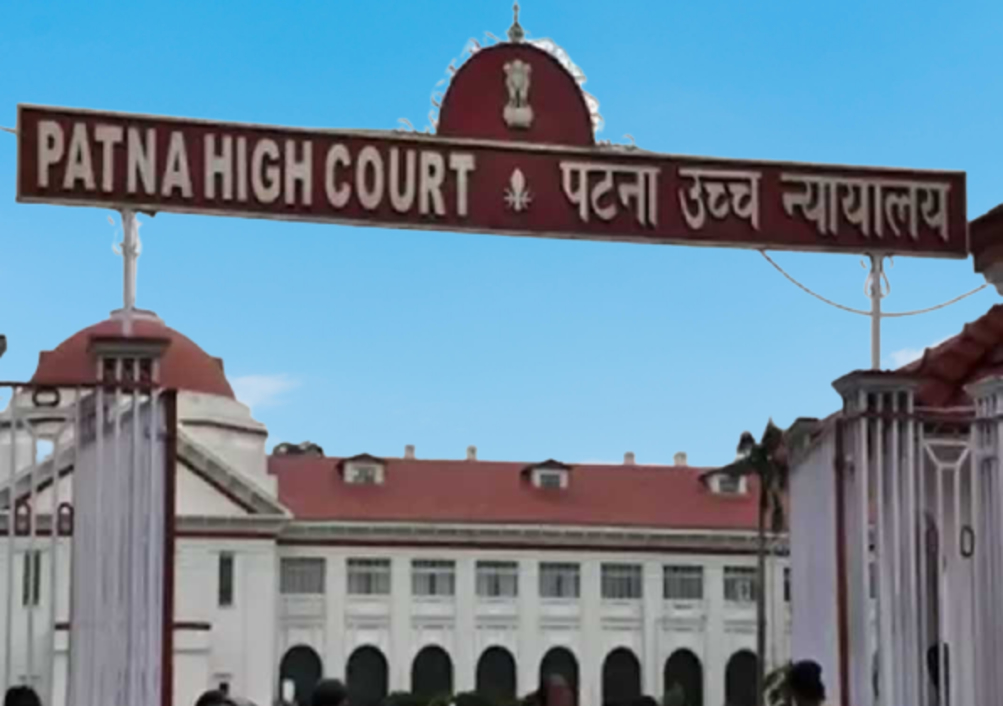In Civil Writ Jurisdiction Case No. 9108 of 2021 -PAT HC- Patna High Court upholds constitutionality of GST Section 16(4), rules no violation of Articles 19(1)(g) & 300A of the Constitution
Justice Chakradhari Sharan Singh & Justice Madhuresh Prasad [08-09-2023]

Read Order: Gobinda Construction and Ors v. Union of India and Ors
Chahat Varma
New Delhi, September 25, 2023: In a significant decision, the Patna High Court has upheld the constitutional validity of Section 16(4) of the Central Goods and Services Tax Act (CGST Act) and Section 16(4) of the Bihar Goods and Services Tax Act, 2017 (BGST Act), ruling that these provisions do not violate Articles 19(1)(g) and 300A of the Constitution of India.
A common challenge in the present batch of writ applications pertained to the constitutional validity of Section 16(4) of the CGST Act and Section 16(4) of the BGST Act. The challenge was based on the assertion that these provisions violate Articles 14 and 300A of the Constitution of India. Alternatively, the petitioners requested a declaration that the conditions outlined in Section 16(4) of the CGST/BGST Act were procedural in nature and should not override the substantive conditions for availing Input Tax Credit (ITC) as specified under Section 16(1) and Section 16(2) of the Acts.
The counsel representing the petitioners argued that the denial of ITC under Section 16(4) of the Act after the specified date was akin to confiscation. They contended that ITC constituted a vested right protected under Article 300A of the Constitution of India and emphasized that such a safeguarded and vested right should not be casually revoked merely on the grounds of delayed filing of returns.
The division bench of Justice Chakradhari Sharan Singh and Justice Madhuresh noted that within the constitutional protection framework, the term 'Property' encompasses a bundle of rights related to a citizen's relationship with a physical asset. These rights include the right to possess, use, and dispose of the property in accordance with the law. 'Property' has a broad and comprehensive meaning, and its legal definition involves the unrestricted utilization, enjoyment, and disposal of one's acquisitions, subject only to the limitations imposed by the laws of the land.
The bench further noted that a fundamental principle of statutory interpretation was that when the words of a statute were plain and unambiguous, and the legislative intent was evident without any obscurity or ambiguity, there was no room for the court to introduce innovations or attempt to amend or modify the statutory provisions.
Thereafter, the bench scrutinized the language of Section 16 of the CGST and BGST Acts. They found that this section was devoid of any ambiguity and explicitly outlined the conditions and restrictions governing the grant of ITC.
The bench emphasized that ITC was not granted unconditionally. To become eligible for ITC, a registered person must satisfy the specified conditions outlined in the law, and they should not be subject to the restrictions described in sub-section (2) of Section 16.
The bench opined that upon a thorough examination of sub-section (1) of Section 16 of the CGST and BGST Acts, the provision in sub-section (4) of Section 16 constituted one of the conditions that render a registered person eligible to claim ITC. Therefore, it cannot be asserted that sub-section (4) violated Article 300-A of the Constitution of India in any way.
“We are not convinced with the submissions advanced on behalf of the petitioners to read down the provision of sub-section (4) of Section 16 of the CGST/ BGST Act since we see neither any reason nor a necessity to do it,” said the bench.
The bench additionally noted that fiscal legislation that applies uniformly to all registered persons cannot be deemed to infringe upon Article 19(1)(g) of the Constitution.
The bench cited the case of ALD Automotive Pvt Ltd v. The Commercial Tax Officer and Ors. [LQ/SC/2018/1340], where the Supreme Court had held that ITC was akin to a benefit or concession provided to a dealer within the framework of the statutory scheme, and this concession can only be availed in accordance with the provisions of the statute.
Therefore, the bench concluded that the allowance of ITC under sub-section (1) of Section 16 of the CGST and BGST Acts was contingent upon the fulfilment of the necessary conditions stipulated in various provisions, including sub-section (4). It was noted that the argument made on behalf of the petitioners, that the court should declare the requirement of sub-section (4) of Section 16 as directory rather than mandatory, was untenable in light of the clear language used in Section 16 of the Acts.
With the above observations, the court concluded that sub-section (4) of Section 16 of the CGST and BGST Acts were constitutionally valid and did not violate Articles 19(1)(g) and Article 300-A of the Constitution of India.
Sign up for our weekly newsletter to stay up to date on our product, events featured blog, special offer and all of the exciting things that take place here at Legitquest.




Add a Comment